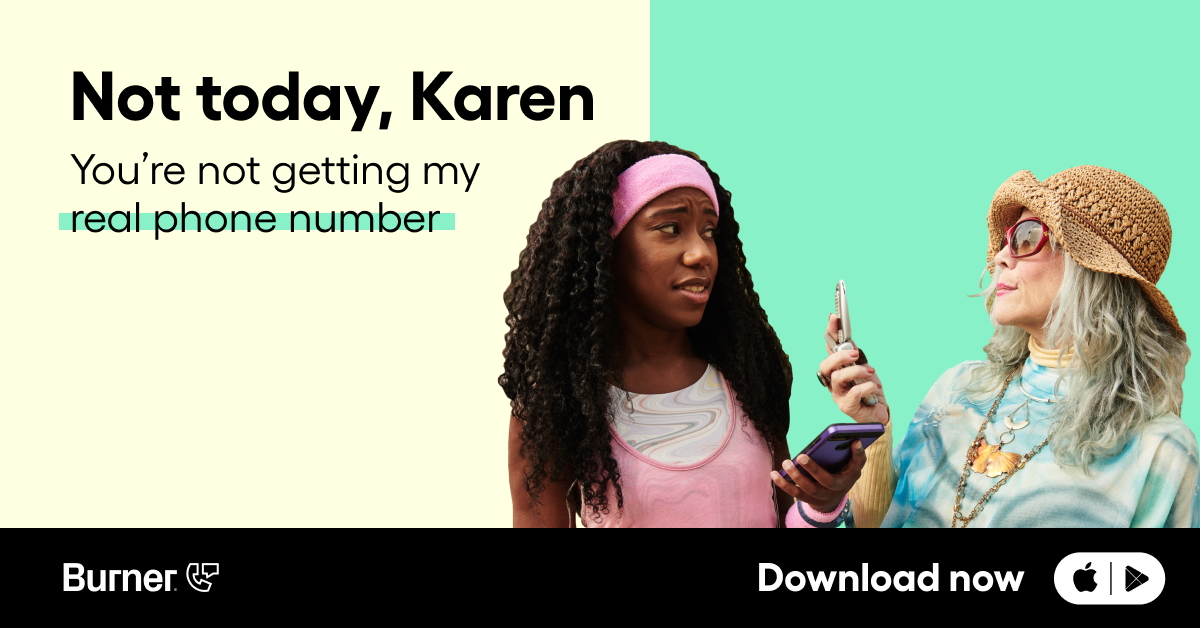Protests never really went away. For the past few decades, though, they’ve been all too easy to tune out, especially in the US. But no more. During the last few months, protests have reclaimed their place as an effective way to bring about change. Technology has played a huge part in this renaissance, but it’s a double-edged sword. As much as your phone can empower protesters, it can be a target for anyone seeking to take away your anonymity.
That means it’s important, now more than ever, to be prepared before you take to the streets. As you’re exercising your right to make your voice heard, be sure you protect your identity with these tips.

Turn off radios
Your phone is a communicator, jukebox, photo studio, shopping assistant, and… tracking device, all in one. Many of the technologies inside can be used to pinpoint your location at any time. Wi-fi, Bluetooth, GPS, and cellular signals can all be used to find you with varying degrees of precision. So if your location is something you want to keep private, shut them all down.
The most foolproof ways are by turning each off in your settings, or by powering down your phone. The quick-and-easy, though not necessarily 100% effective, way is to turn on airplane mode. We caution you on that one because it may not completely turn off things like your Bluetooth radio. There is, of course, the most foolproof way, but it may be unthinkable: leaving your phone at home.

Beef up your passcode
This one is just good security hygiene to begin with. Just like you know—our should know—that “password” is a terrible password, “123456” is a terrible passcode. Change it to something you can remember and others can’t easily guess.
Protect against passcode guesses
While you’re at it, you can set your phone to automatically wipe all data if there are too many incorrect passcode entries. In iOS, you can find this in Settings > Face ID/Touch ID & Passcode > Erase Data. Setting this up on Android devices will vary—and may require a third-party app—so do your homework.

Turn off biometrics
The jury’s still out on whether or not you can be forced to give up your phone’s PIN or account passwords without a warrant. But you can still refuse. One thing you may not have the power to refuse in the moment is your face or fingers. Conveniences like Face ID or fingerprint scanners make it much easier for someone who’s detained you to unlock your phone and apps. Do yourself a favor and turn them off before you head out.
Encrypt your whole disk
Another concern if your phone gets confiscated is access to the storage itself. Full-disk encryption, where every piece of data on your phone gets encoded, helps make it more impenetrable. If you’re on iOS 8 or later—pretty much every iPhone user at this point—full-disk encryption is on by default. On Android, you may or may not have to enable it. On most devices, you’ll find the “Encrypt phone” feature in Settings > Security.

Take out removable storage
If you’ve added more storage to your Android phone by installing a MicroSD card, eject it. Depending on how you access the card, it can be removed in seconds without notice. Even if it’s encrypted, all bets are off once someone else has possession of the card. Leave it at home and save yourself the worry.
Have an iPhone? As many an Android user will happily tell you, you don’t have to worry about this problem.

Update, update, update
New security exploits are always being discovered, so your phone will never be completely safe. But security updates are continually being released to plug the holes. If you aren’t already diligent about it, check for and install any system updates. And while you’re at it, turn on auto updates as a backup. Security patches might not be as exciting as shiny, new feature updates, but they’re a key part of protecting your privacy.

Get a Burner phone
And finally, there’s that oh-so-central, yet oft-forgotten, function of your phone: voice calls. Place a regular phone call, and your wireless carrier will log the date, time, and location. With a burner phone, there’s no connection between the call and your identity.
But who wants to go through the trouble of getting a prepaid phone? Start up a Burner account instead. You can create extra phone numbers on the fly and delete them once they’ve served their purpose. Grab one before you head to a protest, and use the Burner app to make and receive calls and text messages—without giving out your regular phone number.

Be safe out there
Ready to stand up for justice? With a little prep, you can keep your digital privacy intact while you do. Now go change the world!




.svg)
.svg)

.svg)
